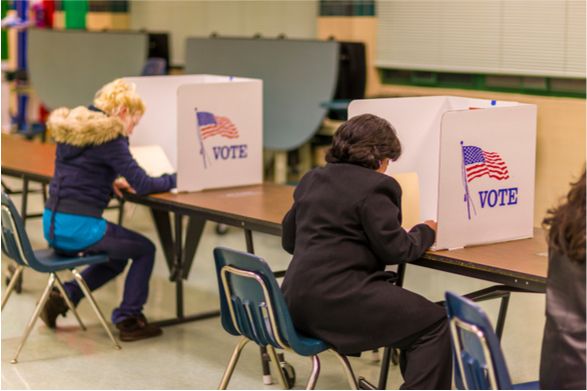It was powerful. A video montage of past presidents — all men, all black and white images, followed by a glass-shattering sound effect and animation to reveal the first woman who’s been a nominee of either party for president. In her own words, she put “the biggest crack in that glass ceiling yet.”
But in the end, voters rejected the “her turn” sales pitch for the highest office in the land. Hillary Clinton lacked a clear vision, so Americans (including many women — 41% of the female vote and 52% of the white female vote) instead pulled the lever for Donald Trump.
We learned a lot from 2016, but one lesson Democratic candidates would be wise to heed is that women don’t automatically vote for women. Recent polling shows that even with numerous women running in the 2019 Democratic primary, two men lead the pack: Joe Biden with 38%, followed by Bernie Sanders with 19%.
Instead, Democrats should consider women voters a diverse group of people (married versus single, stay-at-home mom versus entrepreneur, young versus old, etc.), and each woman, like each man, doesn’t just vote against platforms or people; she votes for platforms and people.
Yet, many Democrats running for the 2020 nomination think the way to reach women is to characterize them as victims. Sen. Kirsten Gillibrand, D-N.Y., is a case in point.
On June 2, during her Fox News town hall, Chris Wallace asked about a tweet she posted in 2018 claiming “Our future is … female” and that when it comes to gender equality, “we’re just getting started.” Wallace followed up by asking, “What about men?” She said, “They’re already there; do you not know?”
Our country’s history is flawed, including in the area of women’s rights. Many have fought so that I can be an entrepreneur. Tuesday, June 4, marked the 100th anniversary of Congress passing the 19th Amendment, which, when ratified, ensured nationwide women’s suffrage. To see how far we’ve come in only a century is astounding.
But many women don’t believe their empowerment should come at the expense of men. They don’t think the future is only female.
The #MeToo movement and the controversy over Judge Brett Kavanaugh prove this point. What began as a movement to rightly expose men who harass or abuse women turned into a movement to always believe women, regardless of evidence or corroboration. Many women, including myself, think that both women and men should be heard. As Axios reported, “Some believe the judge has been treated unfairly, and worry about what the new #MeToo climate means for their husbands and sons.”
Democrats would be wise not to gloss over the intricacies of these claims. Women don’t vote on issues that are seemingly “women’s issues.” The reason? They have men they love in their lives, and they understand men and women’s interests are not opposed, but tied together.
So, what about the single woman, which is a growing demographic in this country? Besides the fact that many single women have grandfathers, dads, and brothers they deeply love, the old adage still applies: “It’s the economy, stupid.” Women are outpacing men in higher education and moving up the career ladder faster than ever before. Female unemployment is at an all-time low (under 4%), single women are buying homes at twice the rate of single men, and 40% of new businesses are started by women. Women are a large part of America’s thriving economy.
Yet even these statistics haven’t convinced Democrats to stop yelling at women about the economic deck being stacked against them. For example, Sen. Kamala Harris, D-Calif., has developed a plan claiming to right the perceived wrongs in pay, or what is commonly known as the gender wage gap. Her plan would force companies to report salaries and face fines if they do not meet the set wage standards. Not only will this deter companies from hiring women in efforts to avoid penalties (therefore, harming women), it also isn’t true that women make 80 cents for every dollar that men do. Data show that the wage gap is negligible when job-related factors are considered. Women often choose career paths that don’t pay as much and often work fewer hours because they want a healthy work/family balance.
Democrats are staring down a hard road as we continue to see record economic growth heading into 2020. No doubt President Trump will tout the strength of the economy, and much of America will have to agree with him since they feel it in their pocketbooks. Democrats need to talk about the issues that affect women every day like business taxes, interest rates on home loans, and healthcare costs.
Don’t get me wrong: It is true that women struggle with the president’s rhetoric more than men. As Sen. Lindsey Graham, R-S.C., noted in reference to the suburban-women vote following the midterm elections, “style does matter, and sometimes it can drown out substance.” It is true that we still see injustices and care about women’s rights.
But if the Democratic nominee focuses solely on victimhood, non-economic issues like abortion, and President Trump’s rhetoric, their platform is likely to fall flat with many women.
The Democratic nominee needs a vision: He or she needs to talk about what they are for instead of what they’re against. No matter how many times women are told they are victims, the reality is women are kicking butt and taking names. For many of us, we know the glass ceiling is already broken. Now we just want government to get out of the way and let us do our thing.


